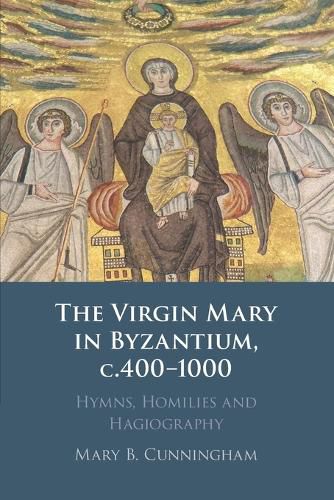Readings Newsletter
Become a Readings Member to make your shopping experience even easier.
Sign in or sign up for free!
You’re not far away from qualifying for FREE standard shipping within Australia
You’ve qualified for FREE standard shipping within Australia
The cart is loading…






The Virgin Mary assumed a position of central importance in Byzantium. This major and authoritative study examines her portrayal in liturgical texts during the first six centuries of Byzantine history. Focusing on three main literary genres that celebrated this holy figure, it highlights the ways in which writers adapted their messages for different audiences. Mary is portrayed variously as defender of the imperial city, Constantinople, virginal Mother of God, and ascetic disciple of Christ. Preachers, hymnographers, and hagiographers used rhetoric to enhance Mary’s powerful status in Eastern Christian society, depicting her as virgin and mother, warrior and ascetic, human and semi-divine being. Their paradoxical statements were based on the fundamental mystery that Mary embodied: she was the mother of Christ, the Word of God, who provided him with the human nature that he assumed in his incarnation. This title is also available as Open Access on Cambridge Core.
$9.00 standard shipping within Australia
FREE standard shipping within Australia for orders over $100.00
Express & International shipping calculated at checkout
The Virgin Mary assumed a position of central importance in Byzantium. This major and authoritative study examines her portrayal in liturgical texts during the first six centuries of Byzantine history. Focusing on three main literary genres that celebrated this holy figure, it highlights the ways in which writers adapted their messages for different audiences. Mary is portrayed variously as defender of the imperial city, Constantinople, virginal Mother of God, and ascetic disciple of Christ. Preachers, hymnographers, and hagiographers used rhetoric to enhance Mary’s powerful status in Eastern Christian society, depicting her as virgin and mother, warrior and ascetic, human and semi-divine being. Their paradoxical statements were based on the fundamental mystery that Mary embodied: she was the mother of Christ, the Word of God, who provided him with the human nature that he assumed in his incarnation. This title is also available as Open Access on Cambridge Core.